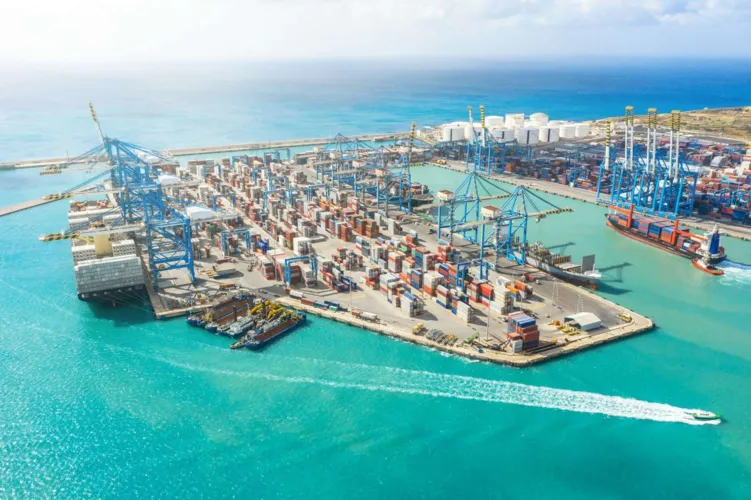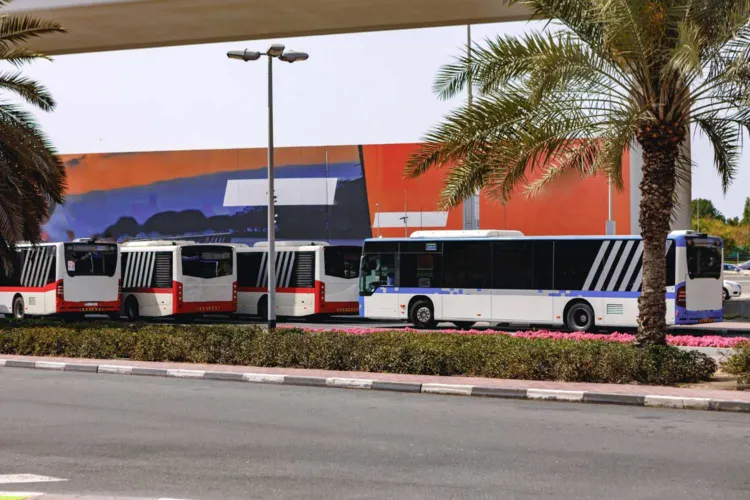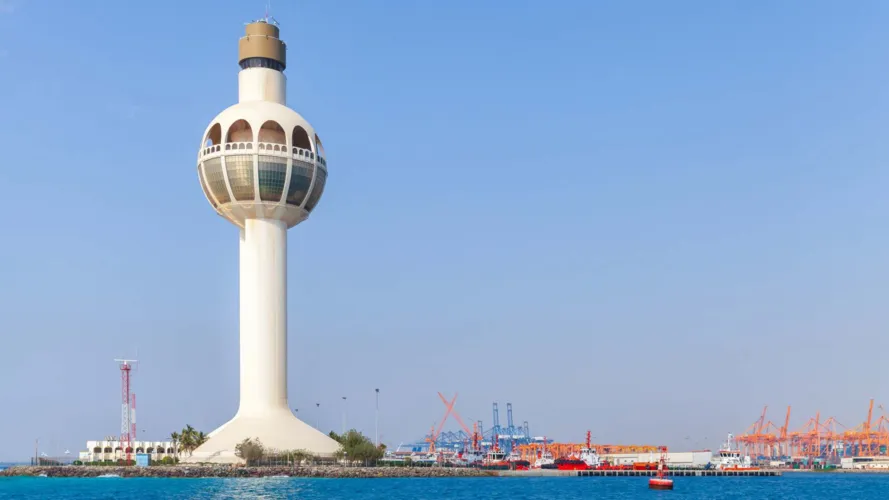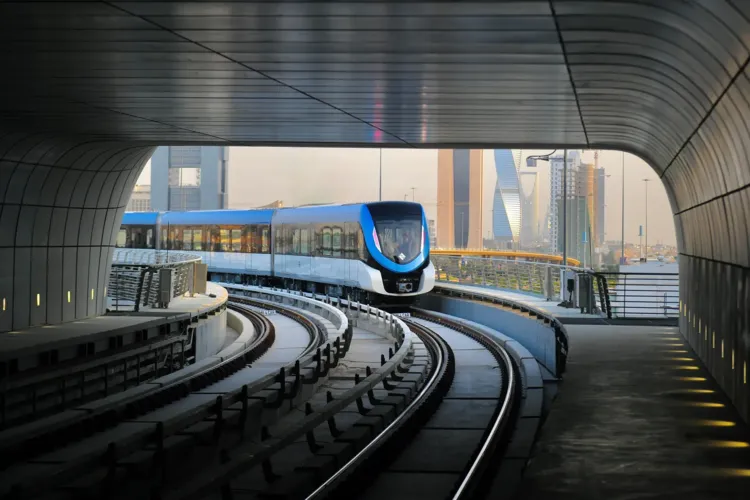Saudi Logistics Initiatives: A $970M Transformation Unfolds
Saudi Arabia’s logistics sector is projected to surge from $560 million in 2024 to $970 million by 2033, advancing at a 6.7% CAGR. This transformation, powered by Saudi Logistics Initiatives, aligns with Vision 2030’s strategic push to modernize supply chains, develop world-class infrastructure, embrace digital innovations, and strengthen cross-border trade partnerships. With a geographic advantage connecting Asia, Europe, and Africa, Saudi Arabia is building the foundation for a future where logistics efficiency powers economic diversification.
$133.3B Infrastructure Expansion Reshaping Saudi Supply Chains
No supply chain overhaul is complete without robust infrastructure, and Saudi Arabia is investing $133.3 billion to create a seamless trade network. The Kingdom’s ports, airports, and rail networks are undergoing major upgrades, aimed at optimizing freight movement, reducing transit times, and improving trade flow.
One of the key Saudi logistics initiatives is the Saudi Landbridge project, a 1,300-km railway designed to bridge the Red Sea and the Arabian Gulf, linking Jeddah to Dammam via Riyadh. The Saudi Landbridge project is poised to transform freight movement, replacing long-haul trucking with a faster, more cost-efficient rail network that significantly cuts transit times. At the same time, expansions at King Abdullah Port and Jeddah Islamic Port are boosting container capacity, strengthening Saudi Arabia’s position as a key player in global trade corridors.
Further investments focus on enhancing air cargo hubs, particularly around King Khalid International Airport in Riyadh and King Abdulaziz International Airport in Jeddah, ensuring faster turnaround times for global shipments. These infrastructure upgrades collectively position Saudi Arabia as an emerging logistics powerhouse, capable of handling the growing volume of global trade.
Also Read: Saudi Landbridge & E-Commerce Driving $970M Logistics Boom
AI and IoT Cut Delivery Times by 25%, Revolutionizing Logistics
Efficiency isn’t just about physical infrastructure—it’s also about smart operations. Saudi Arabia’s logistics revolution is deeply tied to digital transformation, with AI, IoT, and blockchain driving operational improvements.
Retailers and logistics firms are leveraging AI-powered predictive analytics to enhance last-mile deliveries, leading to a 25% reduction in delivery times. Machine learning algorithms help optimize supply chain forecasting, preventing bottlenecks while improving inventory distribution. IoT sensors embedded in cargo shipments provide real-time tracking, reducing lost parcels by 15% and enhancing logistics visibility.
The future of Saudi logistics also includes automated delivery vehicles and drones, which could speed up deliveries by 20% while lowering costs by 15%. As e-commerce demand soars, especially for next-day and same-day deliveries, AI-driven logistics is becoming an indispensable force behind the Kingdom’s modernization.
Free Trade Zones Streamline Cross-Border Logistics
Global trade efficiency is central to Saudi Arabia’s supply chain evolution. Free Trade Zones (FTZs) are emerging as game-changers, making import-export operations smoother and attracting foreign investments.
Businesses operating within Saudi FTZs enjoy tax exemptions, reduced customs duties, and simplified trade regulations, allowing them to scale operations with lower costs. Their strategic placement near ports and airports ensures shipments reach international markets faster, reinforcing Saudi Arabia’s role as a key logistics connector between continents.
The FTZ framework supports diverse industries, including manufacturing, pharmaceuticals, renewable energy, and aerospace exports, aligning perfectly with Saudi Arabia’s economic diversification goals. These zones are not just about policy advantages—they create a fertile ground for logistics companies to expand operations, optimize supply chains, and increase profitability.
Cross-Border E-commerce Drives Supply Chain Expansion
Saudi Arabia’s e-commerce boom is pushing the boundaries of logistics innovation. In 2023, cross-border transactions accounted for 60% of total e-commerce sales, highlighting the Kingdom’s deep reliance on global suppliers. Consumers favor international platforms for competitive pricing and product variety, but the rise of local players is shifting the balance.
Saudi logistics initiatives are accelerating the growth of domestic e-commerce, with projections indicating that local platforms could capture 51% of online transactions by 2026. To support this shift, logistics firms are upgrading last-mile delivery operations, expanding fulfillment networks, and integrating AI-driven route optimization for speedier order dispatch.
The government is also actively supporting cashless transactions and expanding e-commerce infrastructure beyond major cities, ensuring broader digital retail accessibility. This transition is not just reshaping the retail ecosystem—it’s fueling logistics sector growth, creating demand for warehousing, express shipping, and end-to-end supply chain management services.
Saudi Arabia’s Logistics Evolution Is Just Beginning
The Kingdom’s logistics sector is moving into a new era of efficiency and expansion, backed by strategic investments, digital innovation, and trade partnerships. With $970 million in market growth expected by 2033, Saudi Arabia is well-positioned to become a dominant supply chain hub bridging Asia, Europe, and Africa.
Whether through AI-driven logistics, global trade corridors, or cutting-edge infrastructure, the Kingdom’s supply chain transformation is shaping the future of Middle Eastern commerce. As Saudi Arabia builds next-generation logistics capabilities, the rest of the world is paying close attention.
Also Read: 76% Growth Positions Saudi Arabia as Logistics Hub







